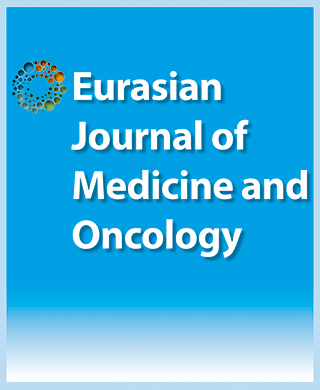

The Cytotoxicity Effect of Recombinant Arazyme on Breast and Ovarian Cancer Cells
Roohollah Zarei Koosha1, Abdolamir Ghadaksaz2, Zoleikha Goleij1, Ghazaleh Amjadi2, Hamid Sedighian1, Saber Mehdizadeh3, Abbas Ali Imani Fooladi11Applied Microbiology Research Center, Systems Biology and Poisonings Institute, Baqiyatallah University of Medical Sciences, Tehran, Iran, 2Department of Biology, Science and Research Branch, Islamic Azad University, Tehran, Iran, 3Department of Immunology, School of Medicine, Iran University of Medical Sciences, Tehran, Iran,
Objectives: Investigating new approaches to obtain an effective therapeutic agent for treating life-threatening can cers is critical. The current study aimed to assess the anti-tumor effect of the recombinant arazyme of Serratia prote amaculans on ovarian and breast cancer in vitro. Methods: The cytotoxic effects of r-arazyme against MCF-7 and SKOV3 cells were evaluated using MTT and lactate de hydrogenase assays. Potential apoptosis induction by r-arazyme was assessed using the Annexin V/PI kit. The Matrigel invasion test was used to evaluate the ability of r-arazyme to reduce cell invasion. In addition, an adhesion assay was performed. RT-PCR was used to measure the expression of genes involved in angiogenesis, apoptosis, and metastasis. Results: R-arazyme showed a high cytotoxic effect against MCF-7 and SKOV3 cells in a dose-dependent manner. In ad dition, r-arazyme has great apoptosis-inducing potential in both cells via the activation of caspase-3 and elevation of the BAX/BCL-2 ratio. R-arazyme significantly decreased the expression levels of the angiogenesis-related genes VEGFR-1 and VEGFR-2 and inhibited both cell adhesion and invasion. Conclusion: R-arazyme may eventually play an essential role in the development of effective therapies against ovarian and breast cancers, thereby reducing the overall morbidity and death caused by cancer. Keywords: Apoptosis, breast cancer, ovarian cancer
Cite This Article
Koosha R, Ghadaksaz A, Goleij Z, Amjadi G, Sedighian H, Mehdizadeh S, et al. The Cytotoxicity Effect of Recombinant Arazyme on Breast and Ovarian Cancer Cells. EJMO. 2023; 7(4): 318-325
Corresponding Author: Abbas Ali Imani Fooladi



